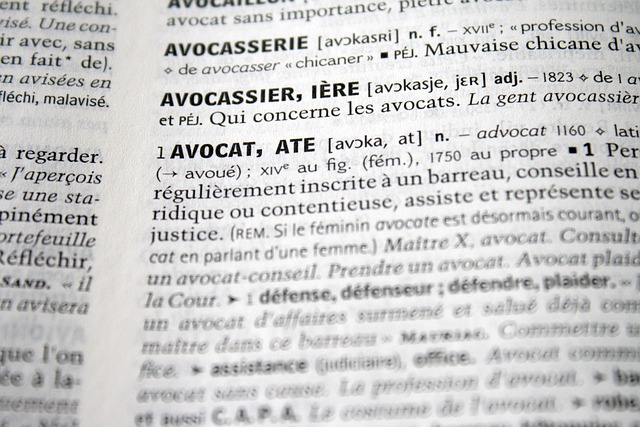Environmental Crime Trials hold parties accountable for ecological damage through civil and criminal proceedings targeting corporations and individuals. Proving a breach of contract is key to achieving justice, with outcomes shaping policies and influencing how communities address environmental concerns. Skilled lawyers navigate complexities, employ strategies like cross-examination and challenging data methods to exonerate clients. Leverage agreements and early dispute resolution tactics like breach of contract disputes for complex cases, fostering cooperative relationships. Sentencing in environmental crime cases demands a nuanced understanding of ecological impact, with restorative justice focusing on healing, reparation, open dialogue, and accountability.
Environmental Crime Trials delve into the legal complexities of cases where environmental damage is caused by deliberate actions, often involving businesses. This article guides you through crucial aspects of these trials, focusing on understanding environmental crime lawsuits and their unique challenges. We explore key elements in proving breach of contract disputes, evidence collection methods, effective prosecution strategies, and innovative sentencing approaches that promote restorative justice. By understanding these components, you’ll gain insights into navigating and resolving such complex legal matters.
- Understanding Environmental Crime Lawsuits
- Breach of Contract: Key Elements to Prove
- Evidence Collection and Preservation Techniques
- Legal Strategies for Effective Prosecution
- Sentencing and Restorative Justice Approaches
Understanding Environmental Crime Lawsuits

Environmental Crime Trials involve legal proceedings that address violations of environmental protection laws. These lawsuits are crucial in holding accountable parties responsible for damaging the environment, be it through pollution, deforestation, or other harmful activities. Understanding how to resolve breach of contract disputes is integral to these trials, as many environmental regulations are based on contractual agreements aimed at preserving ecological balance.
In navigating these complex cases, legal strategies often involve a blend of civil and criminal proceedings, targeting both corporate and individual clients engaged in unethical practices. The outcomes of such trials can have far-reaching implications, shaping policies and setting precedents that influence how philanthropic and political communities address environmental concerns. Moreover, white collar defense tactics play a significant role, ensuring fair processes while upholding the integrity of the legal system.
Breach of Contract: Key Elements to Prove

In Environmental Crime Trials, proving a breach of contract is crucial for securing justice and achieving desired outcomes, such as complete dismissal of all charges in a general criminal defense strategy. To establish this, key elements must be demonstrated clearly. Firstly, the existence of a valid contract between the parties involved must be shown; this outlines the rights and obligations of each party. Secondly, a clear violation of the terms within this contract must be established, highlighting how one party has failed to uphold their end of the bargain.
Understanding these elements is vital for effectively navigating breach of contract disputes in environmental cases across the country. By presenting concrete evidence and meticulously arguing these points, legal professionals can build strong defenses that may lead to the resolution sought by clients, including the complete dismissal of all charges.
Evidence Collection and Preservation Techniques

Environmental crime trials often hinge on meticulous evidence collection and preservation techniques. In cases involving contamination or pollution, samples must be gathered responsibly to avoid tampering and ensure their admissibility in court. This includes proper documentation, chain-of-custody protocols, and the use of calibrated equipment. For instance, in white collar defense, where a company might face charges for environmental misconduct, lawyers need to understand how to resolve breach of contract disputes by examining and challenging the evidence presented.
Skilled attorneys play a crucial role in navigating these complexities, ensuring that their clients’ rights are protected. They employ strategies like thorough cross-examination of experts, questioning the methodology behind data collection, and highlighting any potential contamination or human error during sample handling. By presenting a winning challenging defense verdict, they can exonerate their clients and shield them from unnecessary legal repercussions.
Legal Strategies for Effective Prosecution

In Environmental Crime Trials, understanding how to effectively prosecute these complex cases is paramount. Legal strategies must account for the unique challenges posed by environmental crimes, which often span multiple jurisdictions and involve intricate scientific evidence. One key approach involves leveraging agreements and settlements as a means of resolving disputes early on, potentially avoiding lengthy and costly jury trials. By encouraging cooperative relationships between prosecutors and defendants, especially in cases involving white-collar offenses, it becomes possible to craft remedies that address both criminal liability and environmental remediation.
Additionally, the use of innovative legal tactics can significantly strengthen prosecution cases. This includes the strategic application of breach of contract disputes as a tool for holding individuals and corporations accountable for environmental damage. Across the country, successful prosecutions have relied on meticulous documentation of contractual agreements related to environmental protection, demonstrating intentional disregard or negligence that results in ecological harm. These strategies not only enhance the chances of conviction but also send a powerful message about the severity of environmental crimes.
Sentencing and Restorative Justice Approaches

In environmental crime cases, sentencing and restorative justice approaches offer unique challenges compared to traditional criminal proceedings. Unlike breach of contract disputes that often lead to straightforward financial remedies or complete dismissal of all charges, these trials require a more nuanced understanding of ecological damage and its impact on communities and ecosystems. Restorative justice, which focuses on healing and reparation rather than punishment, has gained traction in recent years. This approach involves engaging victims, offenders, and affected communities throughout all stages of the investigative and enforcement process to find solutions that address both the harm caused and the needs of those impacted.
Unlike jury trials primarily concerned with guilt or innocence, restorative justice prioritises accountability and reparation. It encourages open dialogue between parties involved, fostering an environment where truth-telling and empathy can emerge. This method seeks to restore balance and prevent further environmental degradation while promoting a sense of responsibility among perpetrators. By involving communities directly affected, these processes can lead to more sustainable solutions and foster trust in the justice system.
Environmental crime trials demand a multifaceted approach, encompassing legal strategies from evidence collection to sentencing. Understanding how to resolve breach of contract disputes is crucial within this context, as many environmental crimes stem from contractual agreements. By leveraging effective prosecution techniques and embracing restorative justice approaches, we can ensure that justice is not only served but also fosters positive change in environmental protection. Key elements to prove, such as a clear breach and resulting damages, combined with proper evidence preservation, strengthen cases. Ultimately, these trials have the potential to revolutionize environmental law, encouraging greater accountability and stewardship for our planet.






